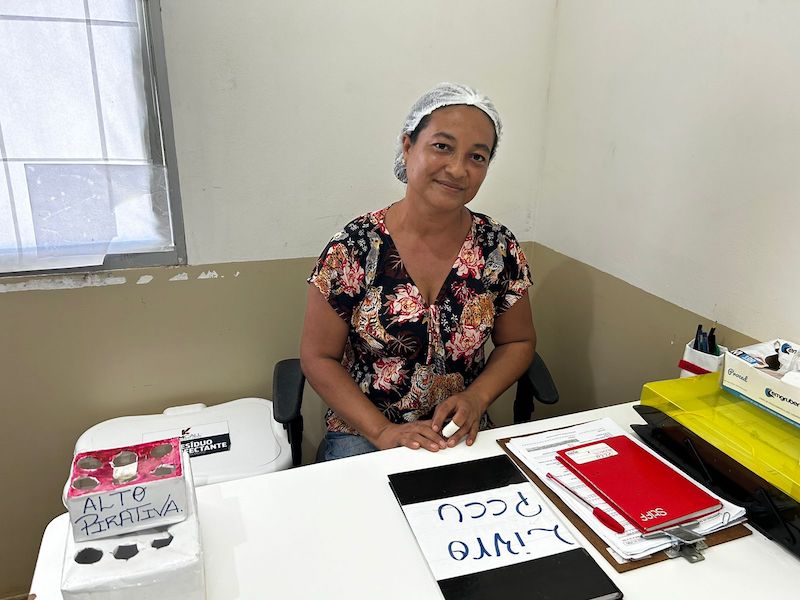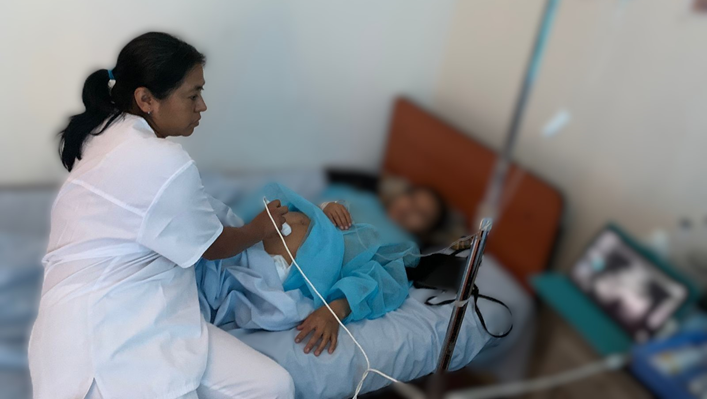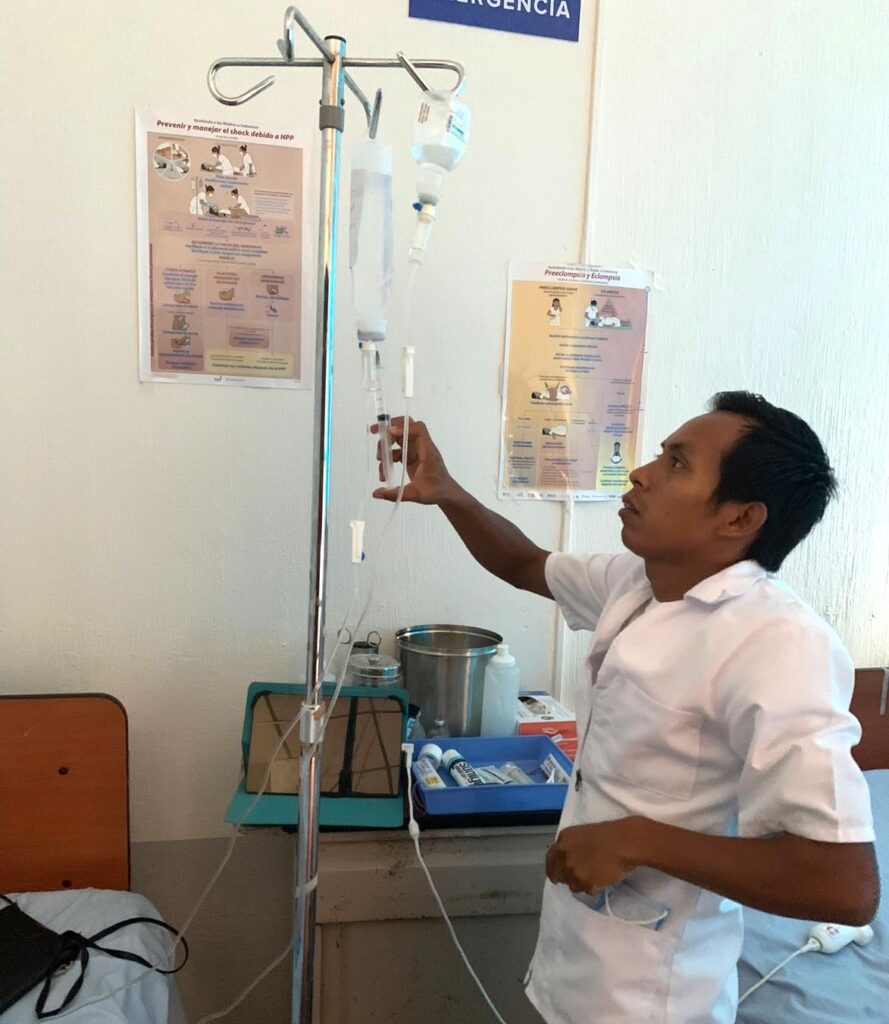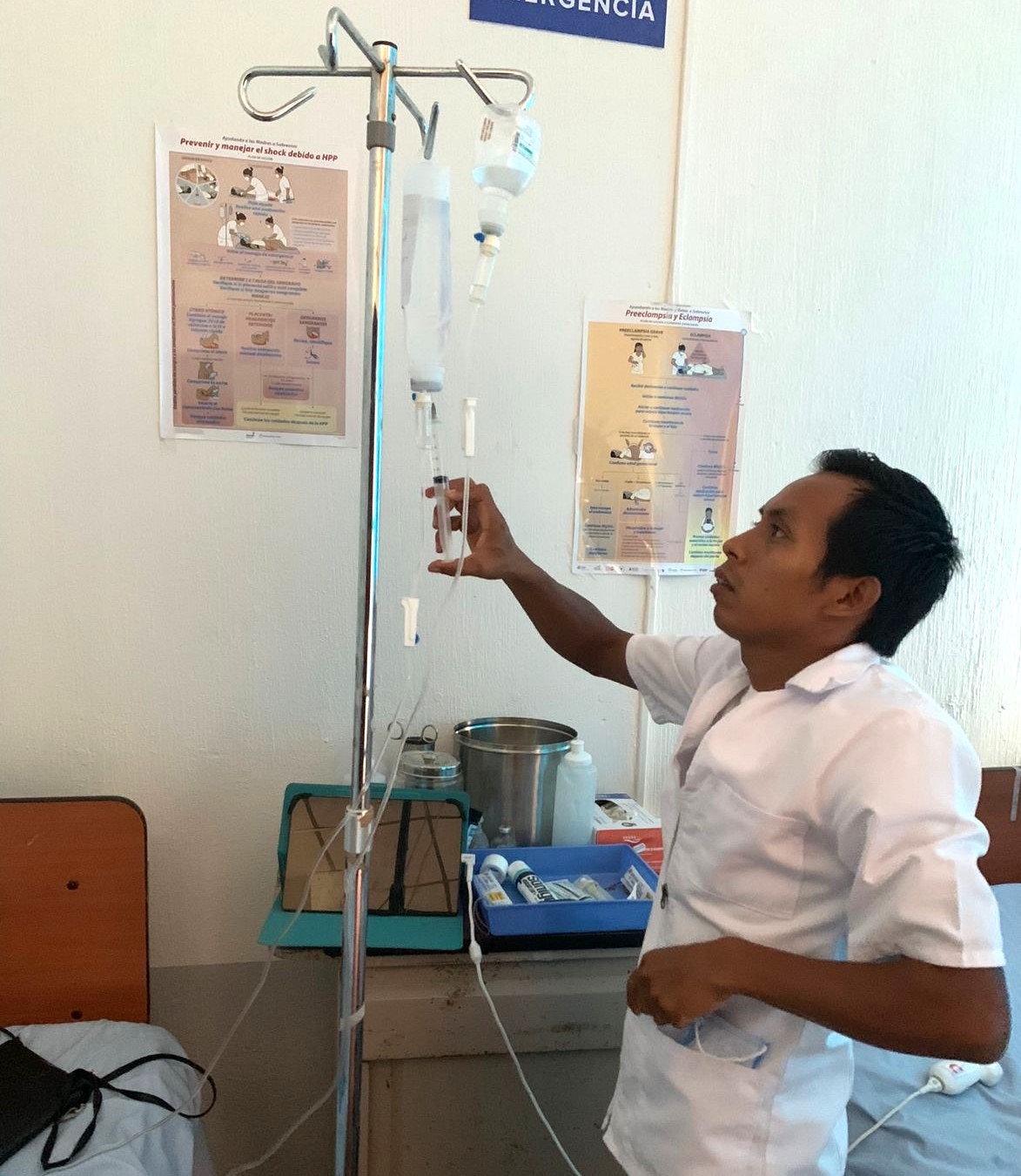In 2024, our Latin American partners focused on improving women’s health; specifically, addressing the disparities between urban and rural rates of maternal mortality and morbidity. With programs emphasizing primary care in rural contexts, to hypertension in pregnancy, ECHO partners provide updated knowledge and best practices to care providers who may be unprepared for perinatal health care emergencies, especially in rural and underserved areas.
Elisabete Pereira, a nurse from the rural, riverside Quilombola (African-Brazilian settlements) community of Alto do Pirativa, in Macapá, Brazil, has relied on ECHO to improve care for her patients. She is a regular participant in the Women’s Health in Primary Care ECHO program, which is managed by the Federal University of Sergipe in collaboration with the Sergipe School of Public Health, and reached professionals in 16 Brazilian states.
“All the topics on the course are very important because I’m the only nurse in the Alto do Pirativa district. I’m practically alone in the community all year round, except for two or three visits from volunteer medical teams,” says Pereira; her community is often only accessible by boat. “The case presentations are especially important on subjects outside my specialty, so that in emergency situations I know how to act,” Pereira noted, adding: “It’s a privilege to exchange knowledge with the world.”

Nurse Elisabete Pereira works in a rural area often only accessible by river, and through Project ECHO, she has found solutions and a community for her female patients. Photo Credit: Tatiana Calandrini
Success with Room to Grow
Ultimately, these new ECHO programs aim to save lives.
Dr. Luis Enrique Fuentes and the team at the National Health Institute (Instituto Nacional de Salud) in El Salvador have hosted an emergency-focused OB-GYN program for three years. “We see more women who have survived truly complicated problems, and they are being treated by the same gynecologists who report the OB-GYN program has helped them to update their knowledge,” says Fuentes, the Superhub coordinator for INS.
Their program shows that women are receiving better medical care in cases of potential mortality or morbidity presenting at the emergency room.

Eligia Natividad Castañeda Herrera, a nurse, treats a a hydatidiform mole or molar pregnancy in a clinic in San Ramón, Guatemala – an extremely rural area that does not have a doctor. For patient confidentiality, the image has been blurred. Photo Credit: Yesenia Anabelli López
Other programs are also seeing positive results from their programs launched in 2024. In Guatemala, the health services department* runs an ECHO program focused reducing the high rates of hemorrhage and hypertension in pregnancy – one of the leading causes of maternal mortality.

Pascual Pedro Pedro, a nurse assistant in San Ramón, Guatemala, injects a medication into a saline drip. Photo Credit: Yesenia Anabelli López
Clinics Without Doctors
“One particular case discussed in the program involved a patient showing symptoms of preeclampsia. Thanks to the training received, the health care professionals were able to implement preventive measures and treatment much earlier than they would have in the past,” says Jislena Paxtor, program director. This program is critical to reducing health disparities: indigenous women in extremely rural and primarily indigenous areas have a maternal mortality rate that is more than double that of non-indigenous women in Guatemala. According to its participants, the program has been a success: in a survey, 95% said they would apply lessons learned and 92% said they would recommend ECHO women’s health programs to a colleague.
“There are no doctors at the [clinic**], so the nurses need to be capable of making diagnoses. We must remember that if a woman is in danger, we need to act quickly, as there can be a risk of premature placental detachment,” says Clemencia Noemí Mérida Barrios, a registered nurse in San Ramón – an extremely rural area that does not have a doctor; nurses are the only lifeline.
There are now 15 ECHO programs supporting women’s health. Latin American partners also have an established range of non-emergency programs focused exclusively on maternal and child health, including nutrition during pregnancy, early childhood pediatric interventions, and general gynecology.
For more information about Project ECHO’s programs and partners in Latin America, email the program team in English, en español, or em português
*Dirección Departamental de Redes Integradas de Servicios de Salud
**Centro de Atención Permanente

